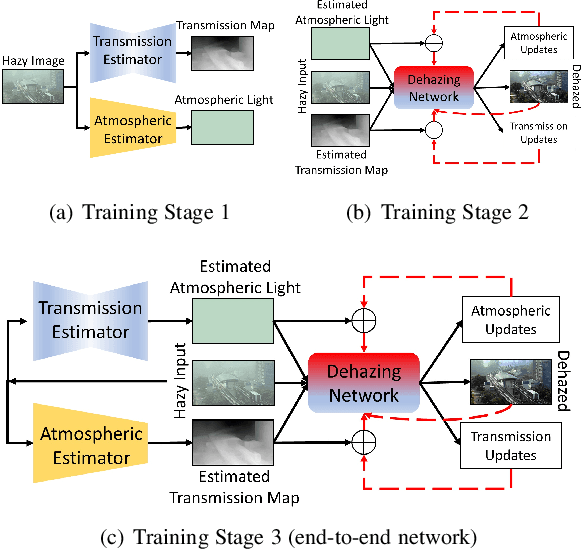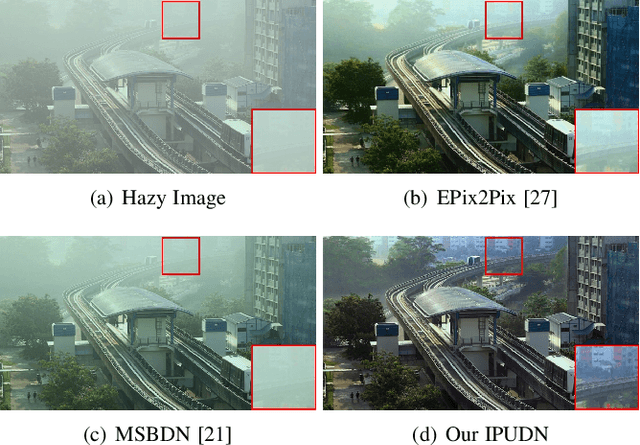Transmission Map and Atmospheric Light Guided Iterative Updater Network for Single Image Dehazing
Paper and Code
Aug 04, 2020



Hazy images obscure content visibility and hinder several subsequent computer vision tasks. For dehazing in a wide variety of hazy conditions, an end-to-end deep network jointly estimating the dehazed image along with suitable transmission map and atmospheric light for guidance could prove effective. To this end, we propose an Iterative Prior Updated Dehazing Network (IPUDN) based on a novel iterative update framework. We present a novel convolutional architecture to estimate channel-wise atmospheric light, which along with an estimated transmission map are used as priors for the dehazing network. Use of channel-wise atmospheric light allows our network to handle color casts in hazy images. In our IPUDN, the transmission map and atmospheric light estimates are updated iteratively using corresponding novel updater networks. The iterative mechanism is leveraged to gradually modify the estimates toward those appropriately representing the hazy condition. These updates occur jointly with the iterative estimation of the dehazed image using a convolutional neural network with LSTM driven recurrence, which introduces inter-iteration dependencies. Our approach is qualitatively and quantitatively found effective for synthetic and real-world hazy images depicting varied hazy conditions, and it outperforms the state-of-the-art. Thorough analyses of IPUDN through additional experiments and detailed ablation studies are also presented.
 Add to Chrome
Add to Chrome Add to Firefox
Add to Firefox Add to Edge
Add to Edge